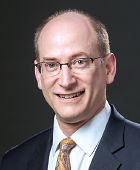My Path to Psychiatry
Abstract

I feel lucky to be a psychiatrist. I came to this choice through a path in which I benefitted from incredible role models, mentors, colleagues, trainees, and patients who helped me grow as a person, doctor, and scientist.
My first role model, and that of my brother Andrew (also a psychiatrist), was my father, Dr. Henry Krystal. He was a Holocaust survivor who turned experiences in the Nazi death camps into a psychiatric career focused on the problem of psychological trauma. Not only was his career inspiring, but he embodied traits and values—such as integrity, skepticism, curiosity, and humanism—that we aspired to emulate.
In 1976, I entered the University of Chicago with only rough ideas about a career in medicine. There, Dr. Daniel X. Freedman was a charismatic psychiatric leader. I was interested in learning about addiction. Drs. Ed Senay, at Chicago, and Ed Khantzian, at Harvard, included me in activities at their methadone programs. I also interned with Dr. Martin Mitcheson at University College London, where I observed methadone, heroin, and even cocaine maintenance treatment.
Seminal moments that shaped my career happened by accident. One epiphany came during a college biochemistry course with Dr. Earl Evans in which he discussed the discovery of endogenous opiates and opiate receptors, highlighting the work of Dr. Solomon Snyder and his colleagues. I realized that specific molecular mechanisms could be identified for addiction, and perhaps other psychiatric illnesses, and that there might be opportunities for transformative scientific discoveries. After that class, on the advice of Dr. Freedman, I contacted Dr. Richard Miller. I studied opiates and endorphins in his laboratory in my free time for the remainder of my college career.
Another epiphany came in 1979, when Dr. Senay graciously brought me to the College on Problems of Drug Dependence meeting. There, I heard Dr. Mark Gold describe one of the first successes of translational neuroscience: the discovery of clonidine as a nonopiate treatment for opiate dependence. This work was a team effort at Yale University involving basic scientists, such as Drs. George Aghajanian and Eugene Redmond, and clinical investigators, such as Drs. Gold and Herbert Kleber. At that point, I wanted to go to Yale to join the hunt for molecular mechanisms of illness and novel treatments.
I arrived at Yale for medical school in 1980 and I never left. Along the way, I had numerous influential mentors, particularly Drs. Dennis Charney, George Heninger, and Patricia Goldman-Rakic. Also, I have had wonderful colleagues and collaborators, whom I count among my most important influences and closest friends. I also have worked with enormously talented mentees, who forged successful independent careers. So far, my career has been more stimulating than I could have imagined. I focused my work on translational neuroscience and, with my colleagues, identified a promising new treatment, that is, the rapid antidepressant effects of ketamine. The opportunities to have an impact on mental illness through science are greater than ever. We are fortunate that despite some obvious challenges, this is the best time in the history of the field to pursue a career in academic psychiatry. ■



